
Hamburg University of Applied Sciences Uses Seeq for Teaching Industrial Analytics
Preparing Students in the Critical Area of Process Manufacturing Analytics
Dr. Margret Bauer is the Professor of Automation in the Faculty of Life Sciences at HAW Hamburg University in Germany, and she’s an expert in data-driven process monitoring. And Seeq is a leader in advanced analytics for manufacturing and is the analytics provider of choice for many leading companies in the oil & gas, pharmaceutical, chemical, and other process manufacturing sectors. Recently, Dr. Bauer and Seeq combined efforts to provide graduate students at Hamburg University of Applied Sciences with a hands-on experience in the critical skills of analytics in process manufacturing.
As part of the Data Acquisition and Processing course taught by Dr. Margret Bauer, graduate level chemical engineering students used Seeq for their data analytics coursework. The students used Seeq’s online training to familiarize themselves with Seeq applications and acquire Seeq Foundation Analytics Skills certification. Students used Seeq connected to a large, industrial dataset—with coursework assignments requiring them to access data from process historians—and to then use statistical methods for evaluation, data cleansing, filtering, and frequency analysis.
Optimizing Process Economic Performance
In one such session, Dr. Bauer led the students through a discussion of process oscillations, a common type of industrial plant disturbance that can propagate to many units. Oscillations can negatively impact a variety of variables related to process economic performance, including production rates, quality, energy use, equipment life, process safety, and others.
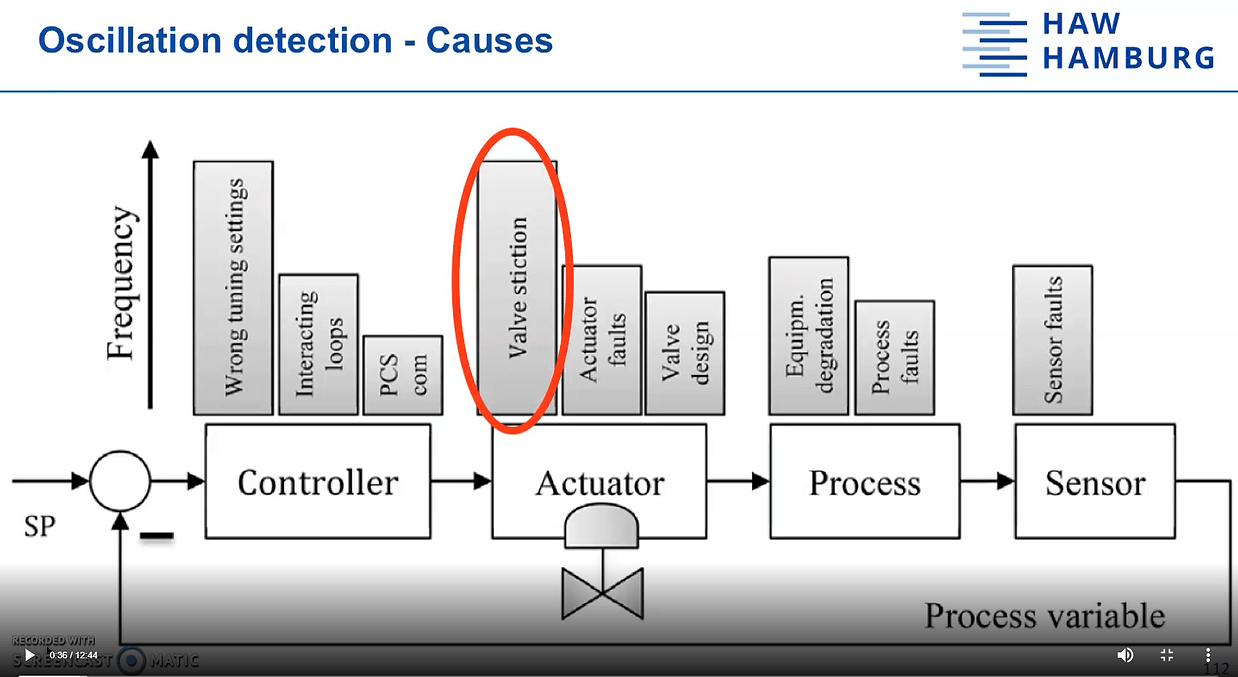
Valve stiction was identified as a common cause of oscillation. This scenario was illustrated through example time trends, giving the students insight into a common yet critical real-world industrial issue.
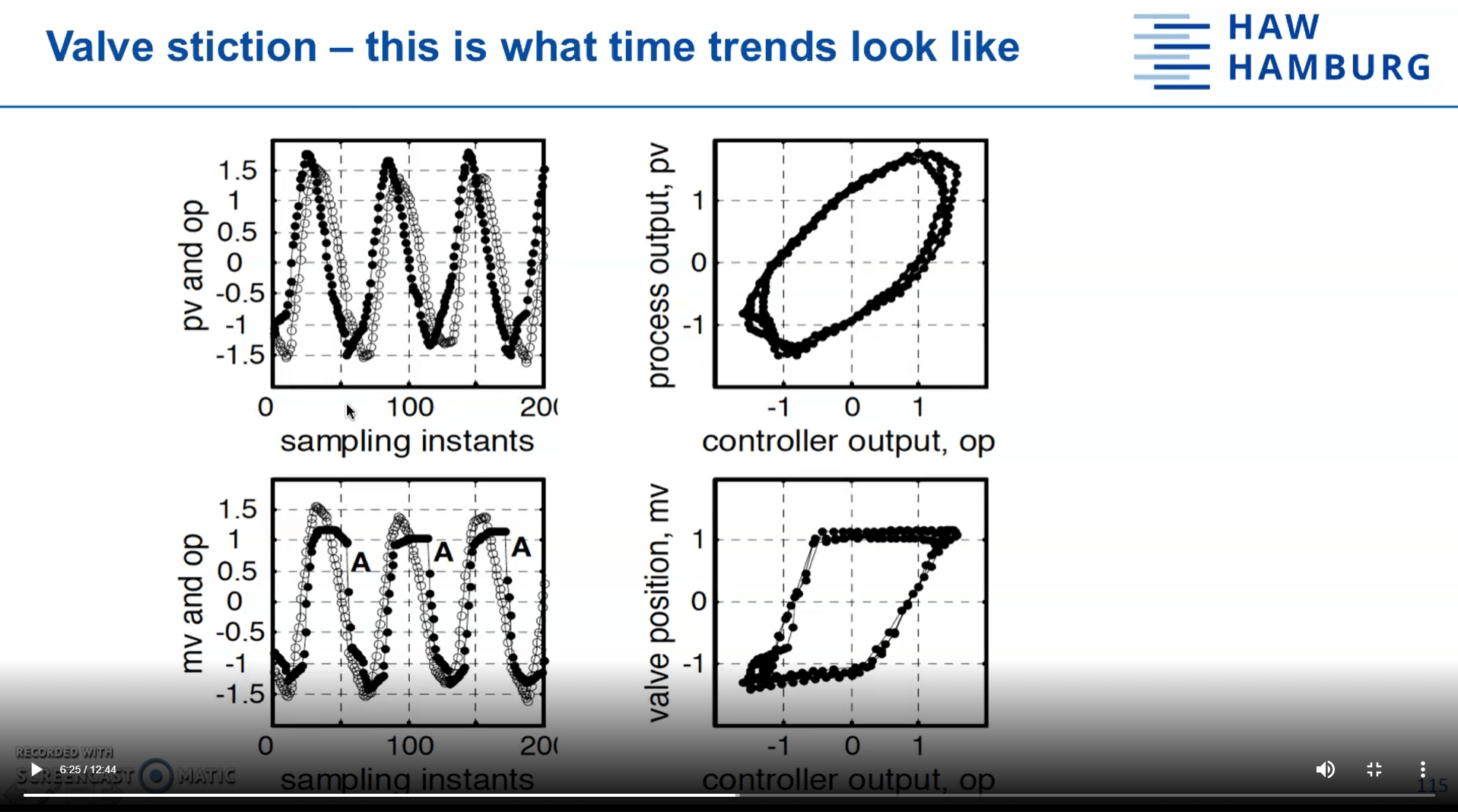
Students also investigated several of the process control loops in the industrial dataset by using Seeq’s scatter plot feature, and they were challenged to develop process monitoring schemes to identify valves with significant stiction.
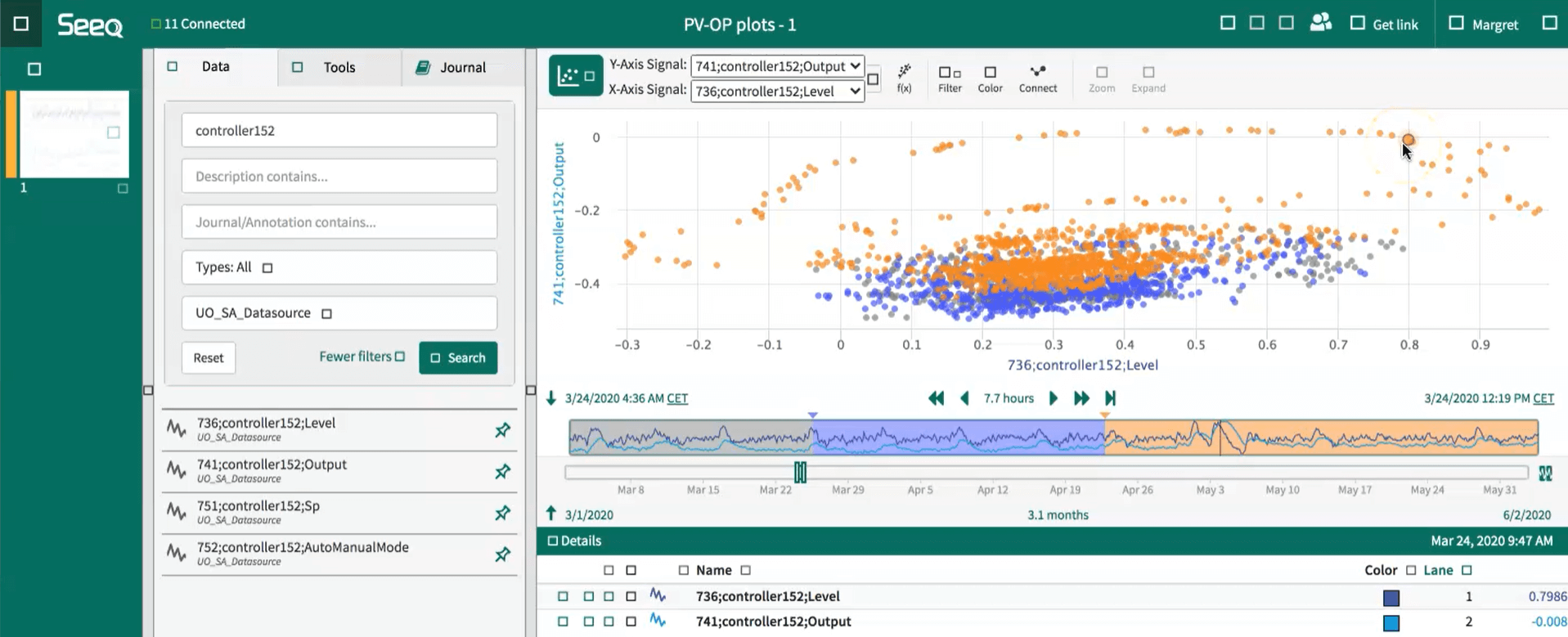
Practical use of Fast Fourier Transform (FFT) to analyze oscillations was also a focus of the coursework. Peaks in the power spectrum were examined using Seeq’s Frequency Analysis tool. This is an effective method for confirming oscillations and identifying signals in the industrial dataset which are being affected by a common disturbance. Such a situation often leads to plantwide propagation of undesirable oscillations and an adverse impact on process performance.
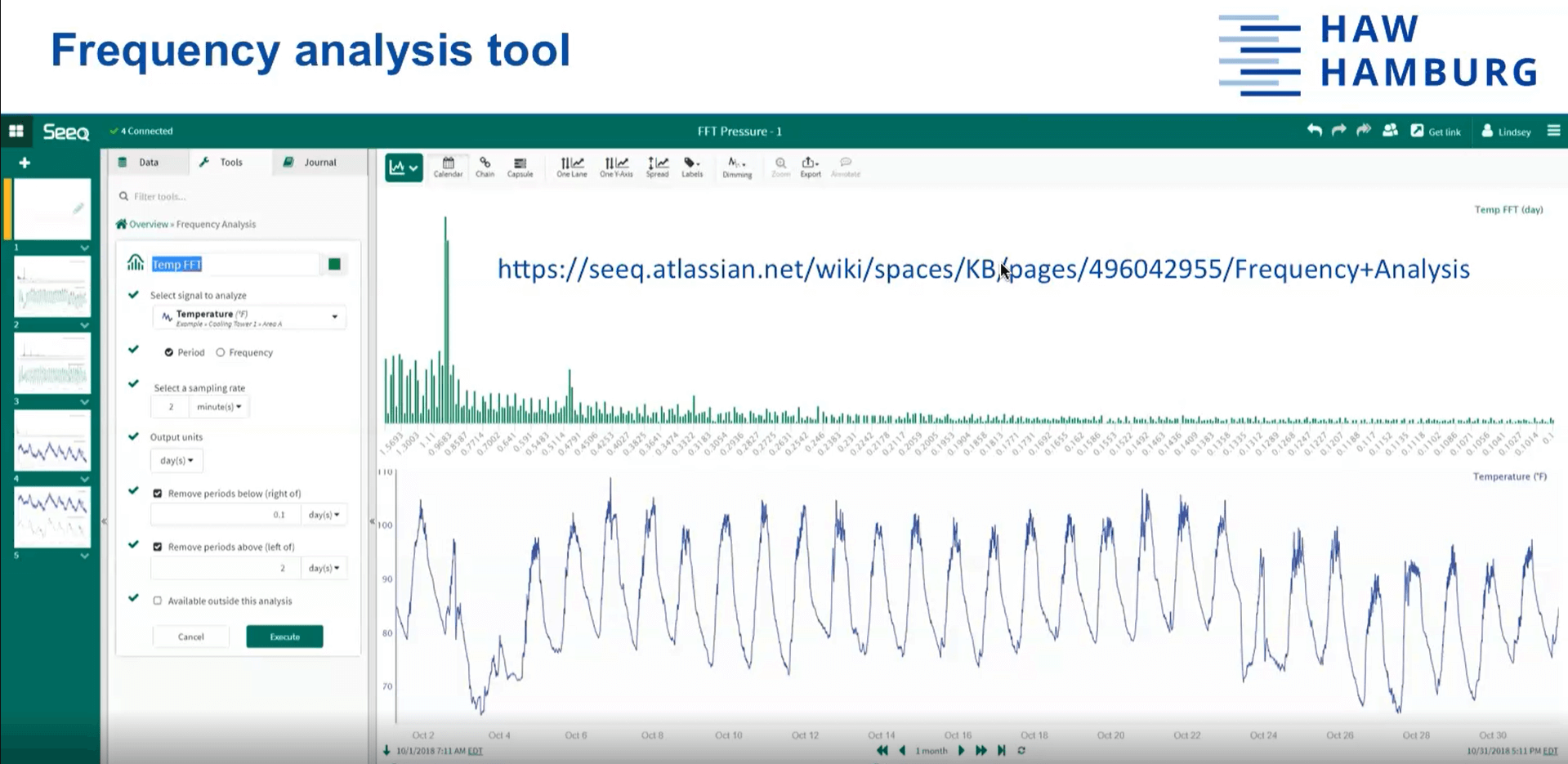
Data cleansing was also introduced to the students using Seeq’s agile filter. Filtering is often a key step in data-based workflows to prepare data suitable for more advanced use, such as prediction modeling and/or time-based aggregations.
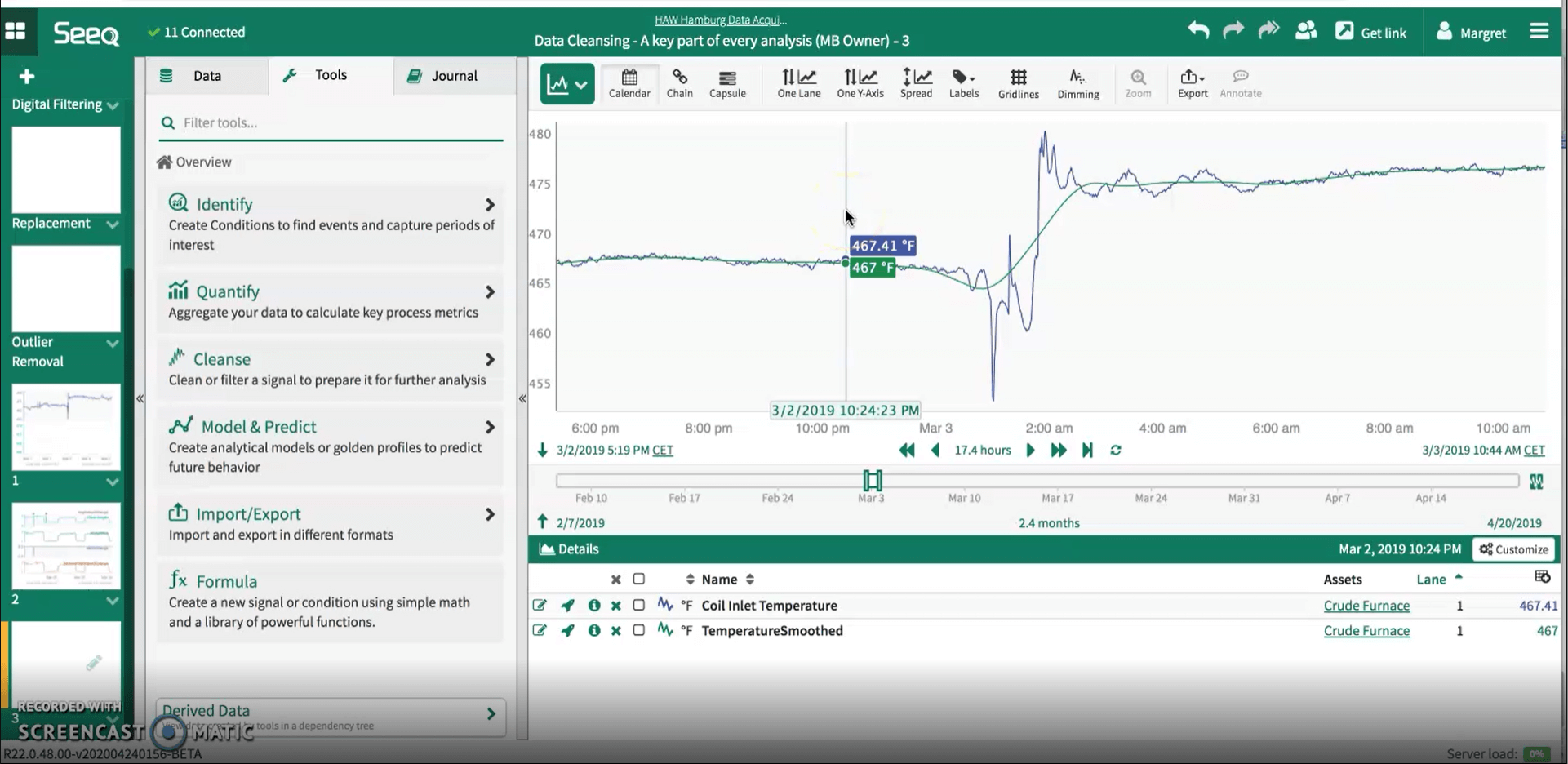
One of Seeq’s analytics engineers spoke to the students and gave them a perspective on how Seeq is used to analyze and solve high-value problems in process manufacturing, and fielded questions on Seeq customer use cases. Dr. Bauer also incorporated analytics exercises in Seeq into the Data Acquisition and Processing course’s final exam.
Seeq and Dr. Bauer will continue their collaboration to further bridge the gap between academic teaching and industry practice. One area of emphasis is developing advanced analytics training/learning material to equip students with a richer skill set to solve real world industrial problems to enhance safety, compliance, production and sustainability performance.
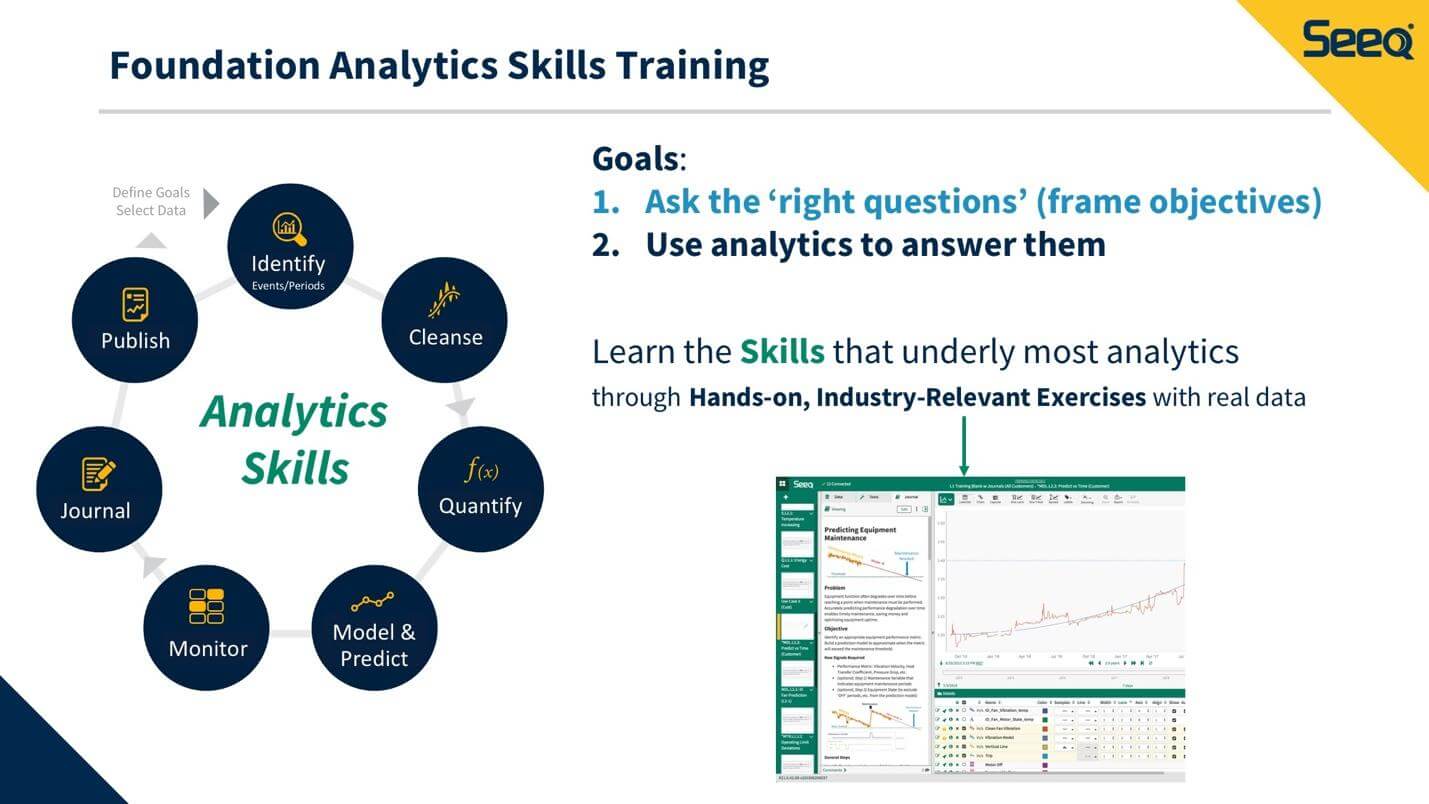
At the conclusion of the course, one of the students reflected on his experience:
“Using Seeq made realize how much information you can gather from raw process data. When I think about my bachelor thesis, I wished I had known Seeq back than and were able to use it. Even with the simplest kind of introduction the operation was intuitive and easy. I had to learn a lot of programs during my studying. Seeq is definitely one of the most enjoyable ones.”
Thank you to Dr. Bauer for her partnership and for preparing students in the critical area of process manufacturing analytics!
Link to M.Sc. program in Process Engineering:
Authors: John Cox, Misha Boehm and Ashwin Venkat*The Seeq Foundation Analytics Skills certification uses hands-on, industry-relevant exercises with real data to train students on Seeq analytics techniques. These techniques serve as the basis for data analytics projects and include identifying data of interest (anomalies, events, modes), data cleansing, quantification (calculating metrics, etc.), modeling & prediction, effective data visualization, etc. The exercises are designed to help people 1) ask the ‘right questions’ (articulate objectives) and 2) use analytics to answer those questions by first choosing analytics approaches that rigorously address the question/objective and then performing the analytics. The course accelerates learning by reinforcing and building upon earlier exercises until learners have both a solid foundation in analytics techniques and ingrained competence using Seeq. Further, the exercises are carefully designed to encourage engagement by explicitly prompting learners to ask and answer their own questions. Such an approach has been shown to accelerate and cement learning. Training also includes discussion of knowledge capture & communication workflows that encourage continuous improvement and digital transformation throughout an organization; this can help students build skills needed to work collaboratively and lead their future workplaces in becoming increasingly efficient, sustainable, and proactive.